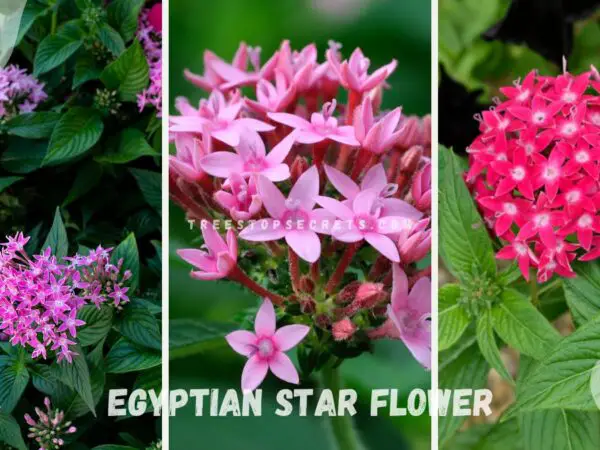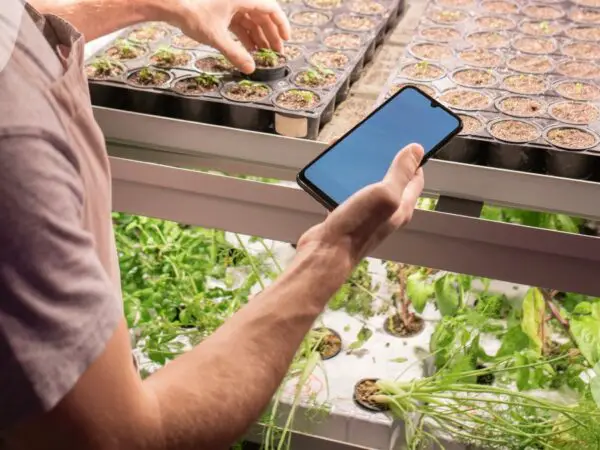Curious if you can grow avocados in Tennessee? Avocado trees thrive in warm climates, but with some care and know-how, it might be possible to cultivate them even in Tennessee's varying conditions. Stay tuned as we explore the feasibility of nurturing these trendy fruits right in your backyard with gardening, seeds, and bits of different parts.
Get ready to uncover the secrets of cultivating avocados amidst Tennessee's unique environment. With a bit of insight and dedication, you might just be on your way to enjoying homegrown avocados that perfectly suit your guacamole cravings.
Feasibility in Tennessee
Climate Suitability
Avocados thrive in warm, tropical climates with minimal frost. Tennessee's fluctuating temperatures and cold winters pose challenges for avocado cultivation. The state's humid summers may also lead to disease issues for avocado trees.
Growing avocados requires a consistent temperature above 50 degrees Fahrenheit, which Tennessee struggles to maintain during winter. Avocado trees are sensitive to frost, which can damage or kill them. The high humidity in Tennessee increases the risk of root rot, a common issue for avocados.
Zone 8 Growing
While some parts of Tennessee fall into Zone 8, it is still challenging to grow avocados due to temperature fluctuations. Cold-hardy avocado varieties like Mexicola and Bacon are more suitable for Zone 8 regions. These varieties can withstand colder temperatures compared to other types.
In Zone 8, special care is needed during winter to protect avocado trees from freezing temperatures. Using frost cloth or wrapping the tree trunk can help prevent cold damage. Providing adequate mulching around the base of the tree also helps insulate the roots.
Survival Prospects
The survival prospects of avocado trees in Tennessee are moderate at best. Success largely depends on microclimates within the state that might mimic warmer conditions suitable for avocados. Factors such as planting location, soil quality, and protection from harsh weather play crucial roles in determining survival chances.
Avocado cultivation in Tennessee comes with its share of difficulties and successes. While challenges like temperature variability and humidity exist, innovative growing techniques such as using greenhouses or microclimates can enhance success rates. With proper care and attention to detail, growing avocados in Tennessee is not impossible but requires dedication and adaptability.
Required Conditions
Soil and Sunlight
Avocado trees thrive in well-draining soil, essential for preventing root rot and ensuring proper nutrient absorption. Adequate sunlight is crucial for avocado trees, requiring full sun exposure to flourish. To optimize growth, choose soil with a pH level between 6 and 7, providing good drainage for root health.
Selecting the right soil type is vital for avocado growth as it directly impacts nutrient uptake and overall tree health. Avocado trees need deep, loamy soil that allows roots to spread easily. Optimal sunlight exposure ensures sufficient energy for photosynthesis, promoting fruit development.
-
Deep, loamy soil promotes healthy root development.
-
Full sun exposure aids in photosynthesis and fruit production.
Watering Needs
Avocado trees have high water requirements, needing consistent moisture levels to support growth and fruit production. Inadequate watering can lead to flower drop and reduced fruit yield. Proper irrigation techniques are crucial to maintain optimal soil moisture levels for avocado trees.
Water availability significantly influences avocado fruit set and size, emphasizing the importance of maintaining consistent watering schedules. Overwatering can cause root rot, while underwatering can stress the tree, affecting its ability to bear fruit. It's essential to strike a balance in watering practices for healthy avocado growth.
-
Consistent watering schedules support optimal fruit production.
-
Proper irrigation techniques prevent issues like flower drop.
Frost Protection
Avocado trees are sensitive to frost, with temperatures below 30°F posing a threat to tree health. Effective strategies such as using frost cloth or blankets, mulching around the base of the tree, and employing overhead irrigation during frost events can help protect avocado trees from cold damage.
Protecting avocado trees during colder seasons in Tennessee is crucial to prevent frost-related injuries that can impact future growth and fruit production. Monitoring weather forecasts and taking proactive measures like covering trees with frost cloth can safeguard avocado orchards from potential frost damage.
-
Frost cloth or blankets provide insulation against freezing temperatures.
-
Overhead irrigation creates a protective barrier against frost damage.
Indoor Cultivation
Choosing Varieties
Avocado varieties suitable for Tennessee's climate include Hass, Bacon, and Fuerte. These varieties are known for their adaptability to different conditions. Each type has specific characteristics that make it suitable for particular zones. For instance, Hass avocados thrive in warmer regions, while Bacon varieties can withstand colder temperatures. When selecting an avocado variety for indoor cultivation in Tennessee, consider factors such as cold hardiness and fruit quality.
Potting and Care
Potting avocado trees for indoor growth involves using well-draining soil and a container with sufficient drainage holes. Plant the avocado seedling at the same depth as its nursery container to prevent root damage. Regular watering is essential to keep the soil moist but not waterlogged. Fertilize the plant with a balanced fertilizer every 6-8 weeks during the growing season. Pruning is crucial to maintain the tree's size and shape, promoting healthy growth.
Light Requirements
Successful avocado cultivation indoors requires at least 6-8 hours of direct sunlight daily. Lack of adequate light can lead to leggy growth and poor fruit production. To ensure optimal light exposure, place the avocado plant near a south-facing window or use artificial grow lights if natural light is insufficient. Rotate the plant regularly to promote even growth on all sides. Monitoring light levels is vital to prevent issues like sunburn or stunted growth.
Outdoor Planting
Best Practices
To successfully grow avocados in Tennessee, proper care and attention are crucial. Regular watering and well-draining soil are essential for healthy avocado trees. Pruning to maintain shape and promote growth is vital.
Site Selection
Select a planting site with full sun exposure and protection from strong winds. Ensure the soil is rich in nutrients and well-draining. Avoid areas prone to frost or excessive moisture.
Season Timing
Plant avocado trees in Tennessee during the spring months after the last frost. Regularly monitor soil moisture levels and adjust watering based on seasonal changes. Prune lightly during late winter for optimal growth.
Care Instructions
Feeding Your Tree
Avocado trees require specific nutrients for healthy growth, such as nitrogen, phosphorus, and potassium. These nutrients promote strong root development and foliage growth. To support the tree's nutritional needs, consider using a balanced fertilizer with an N-P-K ratio of 8-3-9.
Fertilizers play a crucial role in avocado tree development by providing essential nutrients that may be lacking in the soil. Organic options like compost or manure can also enhance soil fertility naturally. When feeding your avocado tree, ensure to apply fertilizer evenly around the drip line and water thoroughly afterward.
Pruning Techniques
Pruning is essential for maintaining avocado tree health as it helps control the tree's size, shape, and overall productivity. Proper pruning techniques involve removing dead or diseased branches, promoting air circulation within the canopy, and shaping the tree for optimal sunlight exposure. It is best to prune avocado trees during late winter or early spring before new growth begins.
Effective pruning involves making clean cuts just above a bud or lateral branch to encourage new growth. Avoid over-pruning which can stress the tree and impact fruit production. Regularly inspect your avocado tree for any signs of disease or pest infestation while pruning to maintain its overall health.
Pest Management
Common pests that can affect avocado trees include aphids, mites, and scale insects. These pests can damage leaves, reduce fruit quality, and weaken the tree's overall health. Severe pest infestations may lead to stunted growth and decreased fruit production in avocado plants.
To manage pests effectively, consider using natural predators like ladybugs or lacewings to control aphids and other harmful insects. Neem oil or insecticidal soaps can help deter pests without harming beneficial insects or pollinators. Regularly inspect your avocado trees for any signs of pest activity and take proactive measures to prevent infestations.
Challenges and Solutions
Cold Weather Strategies
Avocado trees face challenges in Tennessee's cold weather. Protect them by covering with frost cloth. Implementing mulching around the base helps retain soil warmth.
Prepare avocado trees for winter by pruning to remove dead branches. Cold weather can impact tree survival due to frost damage.
Disease Prevention
Avocado trees are susceptible to diseases like root rot and anthracnose. Prevent diseases by ensuring proper drainage and avoiding overwatering.
Early detection of diseases is crucial for effective management. Look out for symptoms like leaf discoloration or wilting. Apply fungicides preventively to safeguard against diseases.
Pollination Tips
Understanding the pollination process is essential for avocado fruit production. Avocado trees are self-pollinating but benefit from cross-pollination for better yield.
Enhance pollination success by introducing beehives near avocado orchards. Bees play a vital role in transferring pollen between flowers, boosting fruit set.
Step-by-Step Guide
Germination Process
Avocado seeds require a bit of patience to germinate, typically taking 2-6 weeks. Begin by washing the seed and suspending it over a glass of water using toothpicks. Ensure the bottom half of the seed is submerged in water. Change the water every few days to prevent mold growth and rotting. Once roots and a stem emerge, transplant the seedling into soil.
Nurturing avocado seedlings involves providing them with adequate sunlight, watering them regularly but ensuring good drainage, and protecting them from extreme temperatures. Avoid overwatering to prevent root rot and provide occasional fertilization for optimal growth. Monitor the seedlings closely for any signs of pests or diseases.
Transplanting Seedlings
Transplanting avocado seedlings should be done carefully to avoid damaging their delicate roots. Select a larger pot with well-draining soil for transplantation. Gently remove the seedling from its current container, being cautious not to disturb the roots excessively. Place the seedling in the new pot at the same depth as before and fill with soil around it.
To ensure successful transplantation, maintain consistent watering without overdoing it, as excess moisture can lead to root issues. Place the newly transplanted avocado seedling in a warm location with indirect sunlight initially before gradually exposing it to more sunlight. Protect the plant from strong winds that can stress it during this critical phase.
Ongoing Maintenance
Maintaining healthy avocado trees requires regular tasks throughout the year. Prune avocado trees annually during late winter or early spring to promote new growth and maintain shape. Fertilize avocado trees three times a year with a balanced fertilizer rich in nitrogen, phosphorus, and potassium.
Create a maintenance schedule that includes regular watering, mulching to retain moisture and suppress weeds, monitoring for pests like spider mites or aphids, and protecting against frost during colder months. Consistent care is crucial for long-term health and productivity of avocado trees.
Necessary Supplies
Tools and Equipment
To care for avocado trees, essential tools include pruning shears, a shovel, and a watering can. These tools aid in maintaining tree health by enabling proper pruning, soil maintenance, and hydration. Select sturdy, sharp pruning shears to ensure clean cuts for tree growth.
The shovel is crucial for planting avocados at the correct depth and ensuring good drainage. A watering can helps in providing adequate water without flooding the roots. When selecting tools, prioritize quality and durability for long-term use.
Organic Fertilizers
Using organic fertilizers benefits avocado trees by providing essential nutrients naturally. Organic fertilizers promote healthy growth without harmful chemicals. Opt for fertilizers high in nitrogen, phosphorus, and potassium for optimal tree development.
Organic fertilizers contribute to soil health and microbial activity, enhancing nutrient absorption. Apply organic fertilizers during the growing season following package instructions for best results. Choose well-balanced organic options to support overall tree vitality.
Protective Materials
Protective materials like tree wraps and trunk guards are vital for shielding avocado trees from pests and harsh weather conditions. These materials safeguard trees from sunburn, frost damage, and pest infestations. Utilize tree wraps to prevent sunscald on young trunks.
Trunk guards protect against rodent damage by creating a physical barrier around the tree base. When selecting protective materials, consider the specific threats in your area to choose the most effective solutions. Properly install these materials to ensure comprehensive protection for avocado trees.
Success Stories
Local Growers Insights
Local avocado growers in Tennessee have shared valuable insights on cultivating avocados in the region. They emphasize the importance of selecting cold-hardy avocado varieties suitable for Tennessee's climate. These growers highlight the need for well-draining soil and adequate sunlight for successful avocado cultivation.
Experienced growers in Tennessee have faced challenges such as unexpected frosts damaging young avocado trees. To overcome this, they recommend planting avocado trees in protected areas or using frost cloth during colder months. These growers stress the significance of regular watering and proper fertilization to ensure healthy avocado tree growth.
Tips from seasoned avocado growers in Tennessee include mulching around avocado trees to retain moisture and suppress weed growth. They also suggest pruning avocado trees to promote airflow and prevent disease. Moreover, these growers advise monitoring soil pH levels and providing occasional foliar feeding to maintain optimal nutrient levels for avocado trees.
Yield Expectations
Avocado yield expectations in Tennessee can vary based on factors like tree age, variety, and environmental conditions. On average, mature avocado trees can produce a yield of 200 to 300 fruits per year once they reach fruit-bearing age. However, it may take several years for young avocado trees to start bearing fruit.
The fruit production and yield of avocados are influenced by factors such as proper irrigation, fertilization, and pest management practices. Avocado trees require consistent watering during dry periods to support fruit development. Pruning is essential to maintain tree health and encourage higher fruit yields.
To maximize avocado yield in Tennessee, growers should consider planting multiple avocado varieties with varying harvest times to extend the fruiting season. Implementing good cultural practices like proper spacing between trees and regular maintenance can contribute to increased avocado production.
Community Resources
Avocado growers in Tennessee can benefit from various community resources that offer support and guidance throughout the cultivation process. Local agricultural extension offices provide valuable information on soil testing, pest control strategies, and best practices for growing avocados in the region.
Organizations like the Tennessee Avocado Growers Association facilitate networking opportunities among growers and provide access to educational workshops and seminars on avocado cultivation techniques. These community resources play a crucial role in assisting new growers with troubleshooting issues and expanding their knowledge base.
Accessing community resources enables avocado growers in Tennessee to stay informed about industry trends, upcoming events, and available grants or funding opportunities for agricultural projects. By actively engaging with these support networks, growers can enhance their skills and expertise in avocado cultivation.
Summary
In Tennessee, growing avocados is feasible with the right conditions and care. Whether indoors or outdoors, following the step-by-step guide and using the necessary supplies can lead to success. Remember to provide adequate sunlight, water, and protection from frost for your avocado plant to thrive.
Now that you have all the information needed, it's time to roll up your sleeves and start your avocado-growing journey in Tennessee. Don't hesitate to reach out for help if you encounter any challenges along the way. Happy planting!
Frequently Asked Questions
Can avocados be successfully grown in Tennessee?
Yes, avocados can be grown in Tennessee with proper care and attention. While it may require some extra effort due to the climate conditions, it is feasible to cultivate avocados in this region.
What are the key conditions required for growing avocados in Tennessee?
Avocados thrive in well-draining soil, ample sunlight, and protection from frost. In Tennessee, it's crucial to ensure the soil pH is suitable (around 6-7) and provide consistent watering during dry periods.
Is indoor cultivation of avocados a viable option in Tennessee?
Indoor cultivation is a great option for growing avocados in Tennessee, especially during colder months. By providing sufficient light, warmth, and humidity levels, you can successfully grow avocado plants indoors.
How should one go about outdoor planting of avocado trees in Tennessee?
When planting avocado trees outdoors in Tennessee, choose a sheltered location with good sunlight exposure. Ensure proper spacing between trees, protect them from strong winds, and consider using mulch to retain moisture in the soil.
What are some common challenges faced when growing avocados in Tennessee and their solutions?
Challenges like cold winters, high humidity, or pest infestations can affect avocado plants in Tennessee. Solutions include winter protection measures, proper ventilation to reduce humidity levels, and implementing organic pest control methods.
Image Source: Paid image from CANVA





